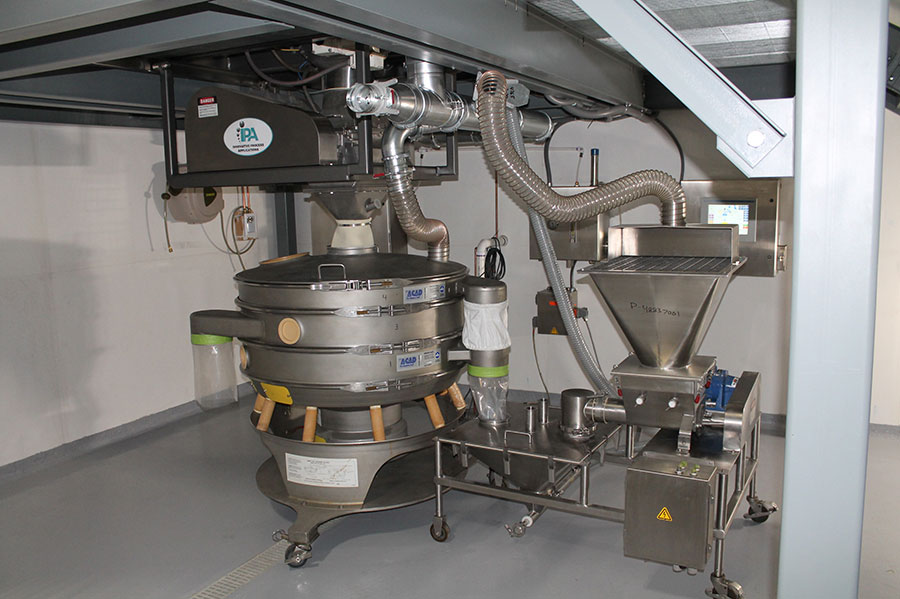Productivity Unleashed: The Role of Contract Manufacturing
In the current rapidly changing commercial environment, organizations are constantly seeking methods to enhance operational efficiency and boost output. A highly effective approach that has emerged is contract manufacturing, a approach that allows companies to concentrate on their main capabilities while leveraging the expertise of specialized manufacturers. By outsourcing manufacturing processes, organizations can reduce overhead costs, minimize uncertainties, and accelerate market entry, ultimately freeing up valuable capital to create and expand.
Contract manufacturing provides a multitude of benefits that can help companies scale quickly without the liability of large expenditures in facilities and workforce. Including cutting-edge technology and talented workforce to streamlined processes, partnering with a contract manufacturer not only boosts product quality but also offers greater flexibility in adapting to market demands. In the following sections, we will investigate how utilizing contract manufacturing can change productivity and drive success in your entrepreneurial journey.
Grasping Agreed Manufacturing
Outsourced manufacturing is a business agreement in which a company outsources its making of their products to a external manufacturer. This method permits companies to focus on its core activities, such as design, marketing, and sales, while utilizing the skills and abilities of specialized manufacturers. By employing outsourced manufacturing, firms can reduce operational costs, enhance manufacturing efficiency, and adjust their production methods according to demand.

One of the main advantages of outsourced manufacturing is the ability to cutting-edge techniques and skilled workforce. Many outsourced producers invest significantly in advanced equipment and facilities, allowing them to create high-quality goods at a favorable cost. This not just improves product standard but also enables companies to benefit from the latest manufacturing advancements without having to make significant capital investments on their own. As a result, companies can keep a market edge in the market.
Moreover, contract production offers flexibility and the ability to scale. As market needs fluctuate, companies can easily modify their manufacturing levels without the burden of overseeing its own manufacturing facilities. This flexibility is essential for businesses looking to launch novel products or respond quickly to shifts in customer choices. Ultimately, outsourced manufacturing can be a strong strategy for enhancing productivity and achieving commercial expansion in an increasingly competitive environment.
Gains of Contract Manufacturing
Outsourced production offers considerable savings for businesses, allowing them to leverage economies of scale without making large investments in operational infrastructure. By partnering with dedicated producers, companies can cut overhead costs associated with labor, machinery, and maintenance. This allows firms to allocate their financial resources more effectively, emphasizing essential functions like research and development or advertising.
In furthermore cost-effectiveness, contract manufacturing offers access to advanced technology and specialized knowledge. Many contract manufacturers utilize high-tech equipment and uphold strict quality standards of quality assurance. This indicates that companies can benefit from superior production capabilities without needing to improve their own manufacturing capabilities. Furthermore, capitalizing on the experience and experience of contract manufacturers can boost product development and new product introduction.
Flexibility is another crucial benefit of contract manufacturing. As industry requirements change, companies often face obstacles in altering production levels quickly and effectively. Contract manufacturers can adjust operations increased or down based on current requirements, allowing businesses to respond rapidly to variability in demand without the challenges associated with maintaining large stocks or overproduction. This responsiveness can be vital for remaining competitive in today's rapidly-evolving market.
Difficulties and Factors to Consider
While outsourced production presents a variety of advantages, it also comes with its own set of challenges that companies must navigate. One significant worry is the potential loss of control over the manufacturing process. When outsourcing, companies may find it hard to maintain control on quality benchmarks, deadlines, and production practices. contract manufacturing in malaysia can lead to discrepancies in the ultimate offering and can impact brand image if not managed properly.
Another key factor is the choice of the correct contract production partner. The wrong partner can result in delays in production, deficiencies in quality, and communication breakdowns. Firms need to invest effort in investigating potential manufacturers, assessing their expertise, competencies, and reliability. Developing robust relationships through transparent interaction and regular updates is essential to ensure that both parties share expectations and goals.
Lastly, businesses should be aware of the consequences of reliance on third-party manufacturers. Relying too heavily on a contract manufacturer for essential parts of your goods can expose a business to hazards such as supply chain disruptions or variations in costs of production. It is necessary to have alternative strategies in place and to evaluate having multiple suppliers to mitigate these threats and ensure smooth functioning.